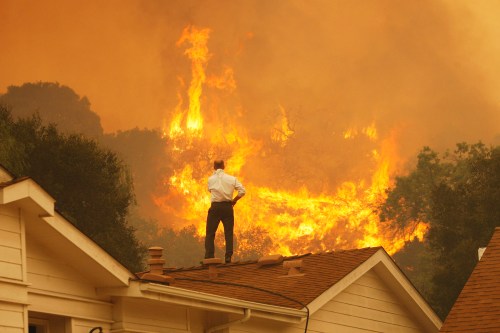Experts Say the Greatest Threat to Public Health Is Earth’s Worsening Climate
More than 200 health editors have called for emergency action, naming the climate crisis as most detrimental to public health.

Science proves that Earth’s climate is changing for the worse—and that humans are the driving factor. As average global temperatures continue to rise, medical experts have joined together to call for emergency action, naming the planet’s current climate as the greatest threat to public health.
In a joint statement published Tuesday, more than 200 leading medical professionals warn that the growing climate crisis could risk “catastrophic harm to health that would be impossible to reverse.” The editorial, published in leading medical journals throughout the world, encourages government leaders to take emergency action to keep the average global temperature increase below 1.5°C.
“No temperature rise is ‘safe,'” reads the statement. “We are united in recognizing that only fundamental and equitable changes to societies will reverse our current trajectory.”
The editorial highlights that the rising climate has already taken its toll on public health. Heat-related mortality among people 65 and older has increased by more than 50 percent over the past 20 years, the statement says. Other health issues, like dehydration, renal function loss, and pregnancy complications, have spiked from higher temps as well, particularly affecting those apart of vulnerable, marginalized communities.
Global warming is also affecting the world’s natural ecosystems that support human life. “Thriving ecosystems are essential to human health, and the widespread destruction of nature, including habitats and species, is eroding water and food security and increasing the chance of pandemics,” reads the statement. “Rises above 1.5° C increase the chance of reaching tipping points in natural systems that could lock the world into an acutely unstable state. This would critically impair our ability to mitigate harms and to prevent catastrophic, runaway environmental change.”
To halt the impending effects, the medical community is urging governments to tread the climate crisis as such. To contain rising temperatures, leaders need to rethink strategies around reducing emissions, cutting back on pollution, and protecting land-dwelling and marine biodiversity.
While the statement assures that rerouting the current climate’s course requires an all-hands-on-deck approach, leaders are prioritizing equity at the heart of the global response. “Contributing a fair share to the global effort means that reduction commitments must account for the cumulative, historical contribution each country has made to emissions, as well as its current emissions and capacity to respond,” reads the statement. The editorial also calls for wealthier countries to cut emissions more than others in order to reach net-zero emissions by 2050.
“The greatest threat to global public health is the continued failure of world leaders to keep the global temperature rise below 1.5° C and to restore nature. Urgent, society-wide changes must be made and will lead to a fairer and healthier world,” the statement reads. “We, as editors of health journals, call for governments and other leaders to act, marking 2021 as the year that the world finally changes course.”
Oh hi! You look like someone who loves free workouts, discounts for cutting-edge wellness brands, and exclusive Well+Good content. Sign up for Well+, our online community of wellness insiders, and unlock your rewards instantly.
Sign Up for Our Daily Newsletter
Get all the latest in wellness, trends, food, fitness, beauty, and more delivered right to your inbox.
Got it, you've been added to our email list.









